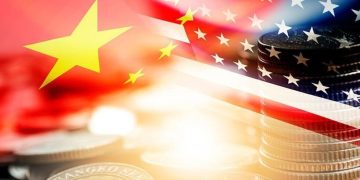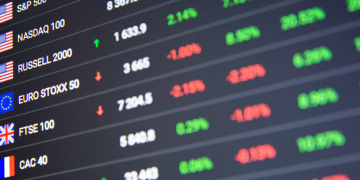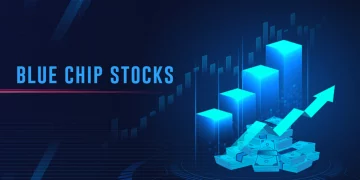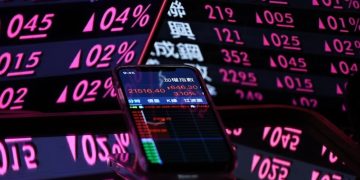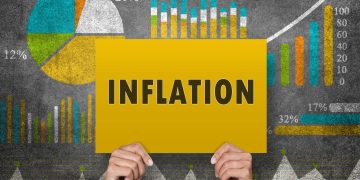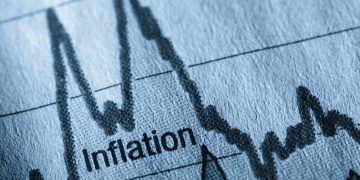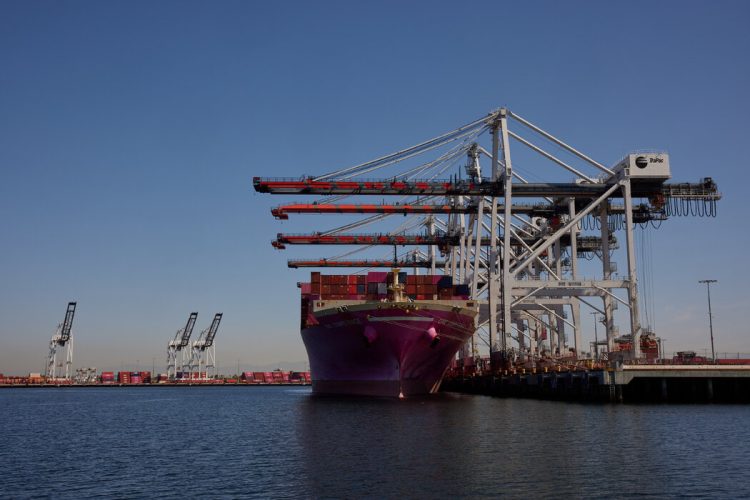Introduction
In recent years, the global economy has faced a series of challenges that have raised concerns among economists, investors, and policymakers alike. From the lingering effects of the COVID-19 pandemic to rising inflation, supply chain disruptions, and geopolitical tensions, there has been a noticeable slowdown in economic growth across many regions. As countries around the world grapple with these issues, the question remains: Is the global economic slowdown exacerbating market uncertainty?
In this article, we will explore the connection between economic slowdowns and market uncertainty. We will examine the factors driving global economic deceleration, analyze how these developments are impacting market dynamics, and discuss what investors and businesses can do to navigate this increasingly unpredictable environment.
What is Economic Slowdown?
An economic slowdown refers to a period in which the growth rate of a country’s economy decelerates, typically measured by a decline in Gross Domestic Product (GDP). Economic slowdowns can be caused by a variety of factors, both external and internal, and are often a natural part of the business cycle. While not as severe as a recession, a slowdown can have significant impacts on markets, corporate profits, and consumer behavior.
Key indicators of an economic slowdown often include:
- Lower GDP growth rates: Economic activity begins to decelerate as demand weakens, and production slows down.
- Unemployment: Job growth may stagnate, leading to higher unemployment or underemployment rates.
- Declining consumer spending: As economic uncertainty rises, consumers may reduce spending, which in turn affects businesses.
- Tighter financial conditions: Increased borrowing costs due to higher interest rates or reduced credit availability can further dampen growth.
Economic slowdowns can be influenced by several factors such as inflation, political instability, natural disasters, or international conflicts. In today’s interconnected global economy, even regional slowdowns can have ripple effects across the world.
Factors Driving the Global Economic Slowdown
1. The Aftermath of the COVID-19 Pandemic
The COVID-19 pandemic significantly disrupted the global economy, causing both immediate and long-lasting impacts. Governments around the world imposed lockdowns, restricted trade, and provided stimulus measures that temporarily boosted the economy. However, these measures were not sustainable in the long term.
- Supply Chain Disruptions: Lockdowns, labor shortages, and restrictions on international trade caused significant disruptions to global supply chains. This led to delays in manufacturing and distribution, and in some cases, businesses struggled to meet consumer demand.
- Inflationary Pressures: Stimulus packages, increased government spending, and disruptions to production led to supply shortages in many industries. This has resulted in rising inflation, which has placed additional pressure on both consumers and businesses.
- Labor Market Strain: Many industries faced worker shortages as a result of the pandemic, which disrupted service industries, manufacturing, and other sectors. The mismatch between demand and available workers contributed to slower economic growth.
2. Rising Inflation
Inflation has been a growing concern worldwide, reaching levels not seen in decades in many economies. As of 2023, inflation rates have been significantly higher than historical averages, driven by factors such as:
- Rising energy costs: Energy prices, particularly oil and gas, have been volatile due to geopolitical instability and supply shortages.
- Supply chain bottlenecks: Ongoing supply chain disruptions have led to shortages in raw materials and finished goods, pushing prices higher.
- Increased consumer demand: After the pandemic, there was a surge in demand for goods and services as economies reopened, exacerbating supply shortages and fueling inflation.
High inflation erodes purchasing power and can reduce consumer spending, which slows down overall economic activity. Central banks, such as the Federal Reserve and the European Central Bank, have responded by raising interest rates in an attempt to control inflation. However, these measures often come with side effects, including reduced consumer borrowing and slowing business investments.
3. Geopolitical Tensions
In recent years, geopolitical risks have become a significant source of global economic uncertainty. Key examples include:
- The Russia-Ukraine conflict: The war has disrupted global energy markets, particularly natural gas and oil, which has caused price volatility. It has also contributed to food shortages, as Ukraine is a major exporter of grains.
- U.S.-China Trade Tensions: The trade war between the U.S. and China has caused disruptions in global trade patterns, impacting industries from manufacturing to technology. Tariffs and export restrictions have increased costs for businesses worldwide.
- Taiwan-China Tensions: The ongoing uncertainty regarding Taiwan’s political status has created fears about future instability in the Asia-Pacific region, particularly in relation to the semiconductor industry, which is critical to the global supply chain.
Geopolitical conflicts lead to market volatility and heighten risk, which further exacerbates economic uncertainty. As tensions continue, investors become more cautious, which leads to reduced confidence in the markets and potential capital flight.
4. Central Bank Policies and Interest Rates
Central banks, including the Federal Reserve, the European Central Bank, and others, play a key role in managing inflation and economic growth. Over the past few years, central banks have shifted their policies in response to changing economic conditions:
- Quantitative Easing (QE): Central banks pumped money into the financial system through QE programs in an effort to support economic recovery following the pandemic.
- Interest Rate Increases: To combat rising inflation, central banks have been raising interest rates. Higher rates typically make borrowing more expensive, slowing down consumer spending and business investment.
The uncertainty around how central banks will adjust their policies in the face of inflation and economic slowdown leads to unpredictable market movements. Investors are unsure whether central bank actions will successfully tame inflation without pushing the economy into recession, which adds an extra layer of risk to the market.
5. Global Debt Levels
Global debt levels have soared in recent years, particularly in the wake of the pandemic. Governments, corporations, and households around the world have taken on more debt to finance stimulus measures, infrastructure projects, and consumption. High debt levels can create several risks:
- Debt Servicing Costs: As interest rates rise, the cost of servicing existing debt increases. Governments and corporations with high levels of debt may struggle to make payments, which could lead to defaults or reduced government spending.
- Reduced Fiscal Flexibility: High debt levels leave governments with less room to respond to future crises, whether they be economic, environmental, or geopolitical.
The risk of debt defaults and the long-term implications of high global debt contribute to the uncertainty surrounding the global economy and markets.
Impact of the Economic Slowdown on Market Uncertainty
1. Increased Market Volatility
The global economic slowdown has significantly contributed to heightened market volatility. When economic conditions are uncertain, investors are more likely to react quickly to any signs of trouble. This volatility is evident in stock markets, where sharp swings in prices have become more common.
- Equity Markets: Stock prices tend to fluctuate based on expectations of future economic growth. As economic indicators weaken or geopolitical tensions rise, market participants may sell off equities, causing significant drops in stock prices.
- Bond Markets: Bond prices can also become volatile, particularly in response to interest rate changes. As central banks raise rates to combat inflation, bond prices fall, leading to losses for investors holding fixed-rate bonds.
- Commodity Markets: Commodities such as oil, gold, and agricultural products often experience increased price swings during periods of economic uncertainty, as supply and demand dynamics change rapidly.
2. Declining Business Investment
Uncertainty about the future economic environment can cause businesses to delay or scale back investments in new projects, research and development, and expansion. Companies become hesitant to hire additional staff or increase production capacity when the future is unclear. As business investment slows down, it further dampens economic growth and contributes to market instability.
3. Reduced Consumer Confidence
As economic conditions worsen, consumer confidence tends to decline. When people are uncertain about their financial future, they tend to spend less, especially on non-essential goods and services. Lower consumer spending translates to reduced demand for products and services, which can hurt businesses and lead to layoffs or wage stagnation. Consumer spending is a critical driver of economic growth, and its decline adds to market uncertainty.
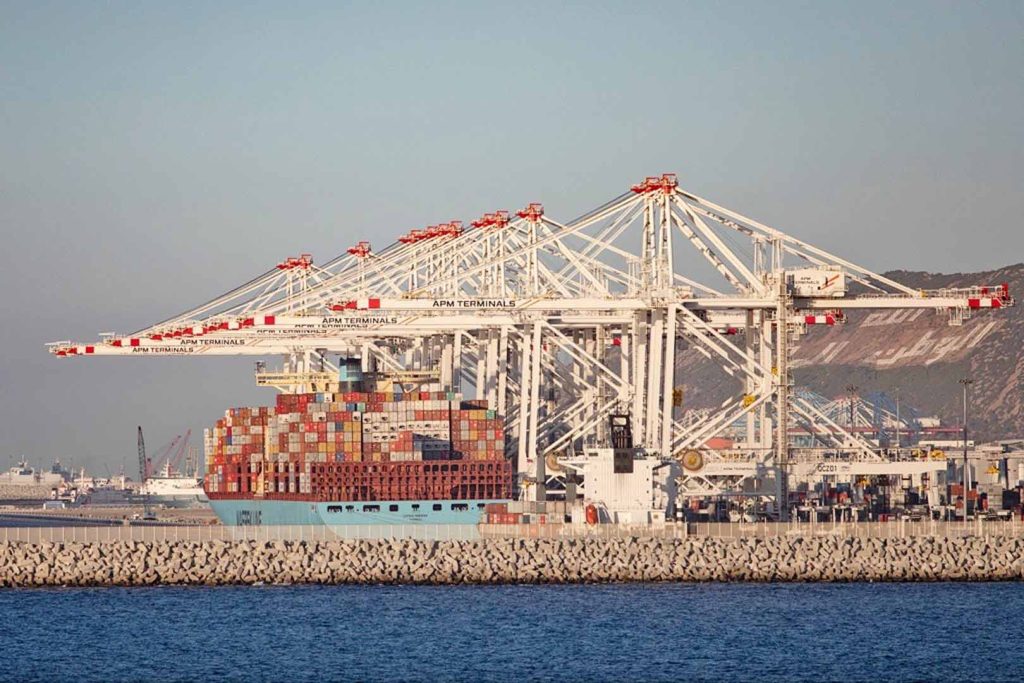
How Investors Can Navigate Global Economic Slowdown and Market Uncertainty
1. Diversify Your Portfolio
One of the most effective ways to manage risk in uncertain economic times is through diversification. By spreading investments across different asset classes (stocks, bonds, real estate, commodities, etc.) and geographies, investors can reduce their exposure to any single market or economic condition.
2. Focus on Quality Investments
During periods of economic slowdown, high-quality investments—such as companies with strong balance sheets, stable cash flows, and a track record of profitability—tend to outperform riskier assets. Investors should focus on sectors that are more resilient during economic downturns, such as utilities, healthcare, and consumer staples.
3. Keep an Eye on Inflation-hedging Assets
Inflation can erode the value of cash and fixed-income assets. Investing in inflation-protected securities (e.g., Treasury Inflation-Protected Securities, or TIPS), commodities like gold, or real estate can help hedge against rising inflation.
4. Maintain a Long-term Perspective
Market volatility can be unsettling, but it’s important to remember that short-term market fluctuations are often temporary. Investors who maintain a long-term perspective and avoid making impulsive decisions based on short-term market movements are better positioned to weather economic slowdowns.
Conclusion
The global economic slowdown is undoubtedly a significant factor contributing to heightened market uncertainty. Rising inflation, geopolitical tensions, central bank policies, and other factors are creating a volatile environment for investors and businesses alike. However, by understanding the underlying causes of the slowdown and adjusting investment strategies accordingly, it is
possible to navigate these uncertain times with confidence. Diversification, quality investments, and a long-term outlook can help mitigate risks and take advantage of opportunities in an unpredictable market.






